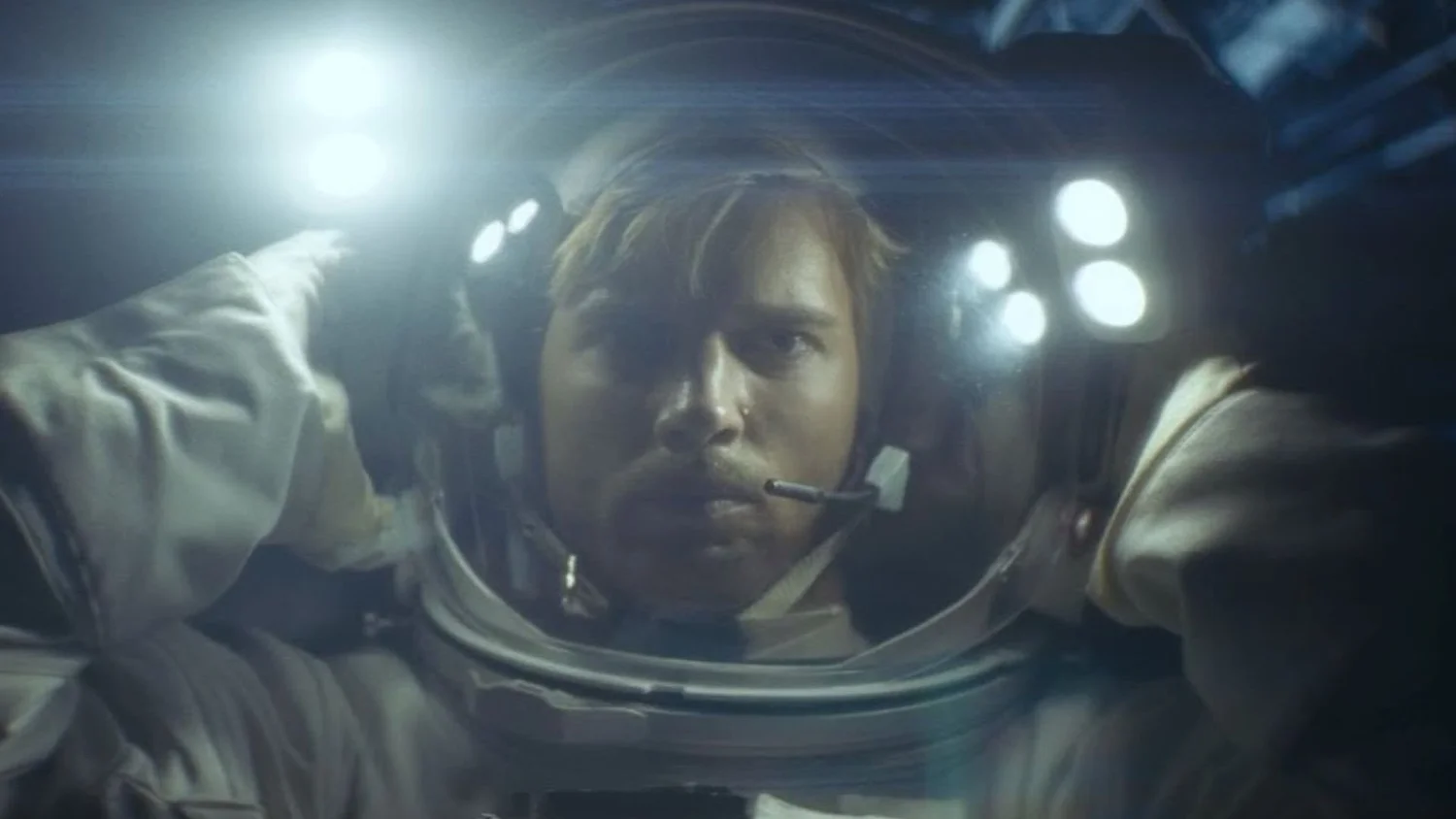
From the first frame of Orion, I knew this wasn’t going to be your typical sci-fi thrill ride. Directed by Jaco Bouwer, the film strips away the genre’s usual spectacle and replaces it with something far more intimate and unnerving, a slow-burn psychological chess match that tests the boundaries of truth, guilt, and identity.
What unfolds isn’t a sci-fi story about outer space so much as one about the space inside the human mind and the lies we build to survive.
At its core, Orion is a two-hander between Andrew McCarthy and Drew Van Acker, and it thrives on that stripped-down simplicity. McCarthy plays Jim, a NASA interrogator tasked with helping Apollo, an astronaut who’s survived a catastrophic crash, recover his memories.
The rest of the crew is dead, Apollo’s mind is fragmented, and it’s Jim’s job to piece together what really happened up there. The premise might sound straightforward, but from the moment their conversation begins, it’s clear this is no simple debrief… it’s a battle of control.
The tension in Orion isn’t built through sci-fi action; it’s built through silence, through the measured pauses between questions and the unease that comes when someone smiles just a beat too late.
Bouwer transforms a single location into a psychological labyrinth. The setting feels less like a safe haven and more like a mind trap. You can almost feel the walls closing in as the truth bends and reshapes itself between Jim and Apollo.
Philosophically, the film hits harder than most sci-fi you’ll see this year. Orion isn’t really asking “What if we met aliens?” It’s asking, “Would we even know the truth if we did?” Through Apollo’s fractured memories and Jim’s manipulative calm, the movie explores the terrifying idea that truth isn’t something we discover, it’s something we construct.
Like any construction, it can be edited, twisted, or destroyed. In an age where misinformation defines reality, that hits uncomfortably close to home.
What I found fascinating was how the story mirrors our current struggle with communication itself. Apollo’s attempts to remember his encounter with an intelligent life form, one he connected with through music, echo how language, emotion, and intent can become barriers instead of bridges.
It’s about how we fail to truly hear each other. Bouwer’s restraint turns every exchange into a philosophical standoff… how much of what we “remember” is truth, and how much is what we need to believe?
The performances here are incredible. Van Acker brings a raw vulnerability to Apollo, a man who doesn’t just question what happened, but whether his own mind can be trusted.
McCarthy, on the other hand, delivers one of his best and most interesting performances in years. There’s a cold patience in his portrayal of Jim, the kind that makes you lean forward and second-guess every word he says. Watching these two circle each other feels like watching a psychological boxing match.
Visually, Orion uses its limitations to its advantage by embracing a minimalist, grounded aesthetic that fits perfectly with its psychological tension. The confined spaces, muted colors, and lack of flashy effects make the film feel raw and and uncomfortable.
The simplicity of the the production becomes the film’s greatest strength, keeping the focus squarely on the characters and their unraveling connection. Every detail adds to a sense of unease that feels both human and otherworldly.
By the time Orion reaches its conclusion, the question of “who or what killed the crew” becomes almost secondary. What matters is what that search reveals about humanity, our obsession with control, our fear of the unknown, and our inability to accept that truth might not be absolute.
This isn’t a movie that spoon-feeds its answers; it’s one that lingers in your head, asking you to wrestle with them after it ends. Orion might be small in scale, but in thought and emotion, it’s absolutely massive.








